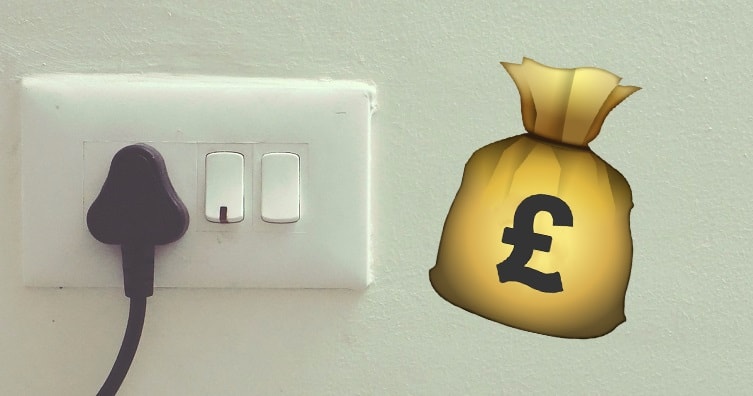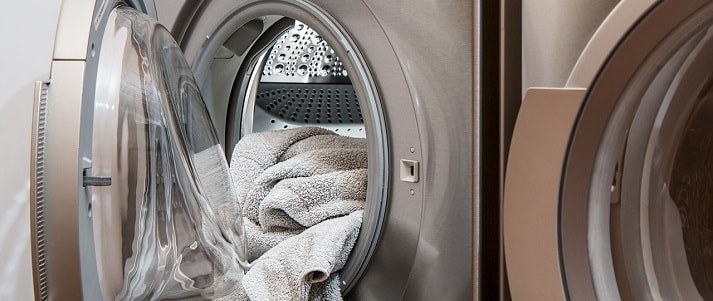Most common energy wasting habits
Almost half of us leave the TV on standby overnight, and a third of us don’t unplug kitchen appliances when no-one is using them.

A new survey has revealed the worst energy-wasting habits of UK households, with results that are bound to spark some heated finger-pointing in student homes.
The research by UK Power surveyed 1,000 homeowners across the country, and unveiled a long list of bad habits that cause energy bills to soar.
Many of you will share a house at some point while you're at university, meaning you or one of your flatmates could be among the culprits, even if you don’t have much money to spare!
So what are our worst energy habits?
 Credit: Badly Drawn Dad - Flickr
Credit: Badly Drawn Dad - Flickr
Admit it, you’re guilty of at least a few of the below sins. Or are you pretty energy conscious and constantly feel angry at your housemates’ bad routines? Perhaps showing them this list will kick them into shape!
- Leaving the TV on standby overnight (41%)
- Leaving kitchen appliances plugged in when not in use (33%)
- Leaving a laptop plugged in when fully charged (30%)
- Leaving a light on in an empty room (26%)
- Leaving the TV on when nobody is watching (25%)
- Leaving a phone plugged in when fully charged (24%)
- Leaving a laptop on standby (22%)
- Re-boiling a kettle after forgetting it has just been boiled (15%)
- Falling asleep with the TV on (11%)
- Leaving the radio on when nobody is listening (10%)
Our worst energy habits tend to be leaving appliances plugged in when they're not in use, such as kettles, toasters, and televisions.
Perhaps taking the plug out after every time you make a cuppa is a bit much, but making an effort to unplug as many appliances as you can before you go to bed is a good shout!
Over a quarter of us also frequently leave lights on when there is no-one in the room. Making a habit of switching them off when you leave a room will save you money as well as energy.
That said, us Brits are conscious of certain energy usage. Almost two thirds of people never leave their fridge door open, as this not only wastes energy, but potentially ruins food too. People also rarely leave the radio on when no-one is listening.
What your energy habits actually cost

When asked how much they think they spend on energy, the UK public weren’t particularly good at estimating how much tasks actually cost.
The table below should bust some myths and help you understand the real money you’re spending.
| Habit | Perceived rank | Actual rank | Actual cost |
|---|---|---|---|
| Drying clothes in the tumble dryer | 1 | 2 | £0.35 |
| Putting an electric heater on for an hour | 2 | 3 | £0.31 |
| Washing a load in the washing machine | 3 | 1 | £0.50 |
| Drying your hair with a hairdryer | 4 | 7 | £0.06 |
| Boiling the kettle to make a cup of tea | 5 | 10 | £0.25 |
| Ironing for an hour | 6 | 5 | £0.15 |
| Straightening your hair with straighteners | 7 | 13 | £0.004 |
| Cooking a microwave meal | 8 | 6 | £0.12 |
| Watching TV for an hour | 9 | 11 | £0.02 |
| Using a games console for an hour | 10 | 8 | £0.03 |
| Using a slow cooker for an hour | 11 | 4 | £0.25 |
| Charging your phone for an hour | 12 | 9 | £0.03 |
| Turning on a light for an hour | 13 | 12 | £0.005 |
| Turning on an energy-saving light for an hour | 14 | 14 | £0.003 |
Clearly there are a lot of misconceptions about how much things cost. For example, drying clothes in the tumble dryer is believed to be the most expensive activity, while in reality washing your clothes is more pricey.
This is why it's a good idea to ensure that you fill the washing machine up on every wash you do, rather than just washing one or two items. Using a slow cooker was also underestimated, costing 25p per hour.
Those surveyed also believed that using a hairdryer and boiling a kettle use up a lot of energy, but they were both relatively low down the list at 6p and 0.25p for an hour. So don’t worry, you don’t need to give up your cups of tea!
However, those surveyed were right in thinking that using an electric heater is expensive. 31p might not seem like much for one hour, but it would add up if you had it on for a whole day! For that reason, it’s better to use central heating if you can.
As expected, energy saving light bulbs came in at the cheapest on the list. While these bulbs are slightly more expensive to buy, they're definitely worth it for the amount you save on electricity in the long term. Why not get your housemates to all chip in to pay for them?
Watching TV, turning on a light, and using hair straighteners are also all relatively cheap uses of electricity.
Check out some further information on how much electricity specific appliances use per hour, and impress your flatmates with your savvy energy knowledge.
No matter how good you are at saving energy, if your provider is giving you a bad deal, you'll be still splashing the cash! To help you decide which company to go with, here’s a handy comparison.








